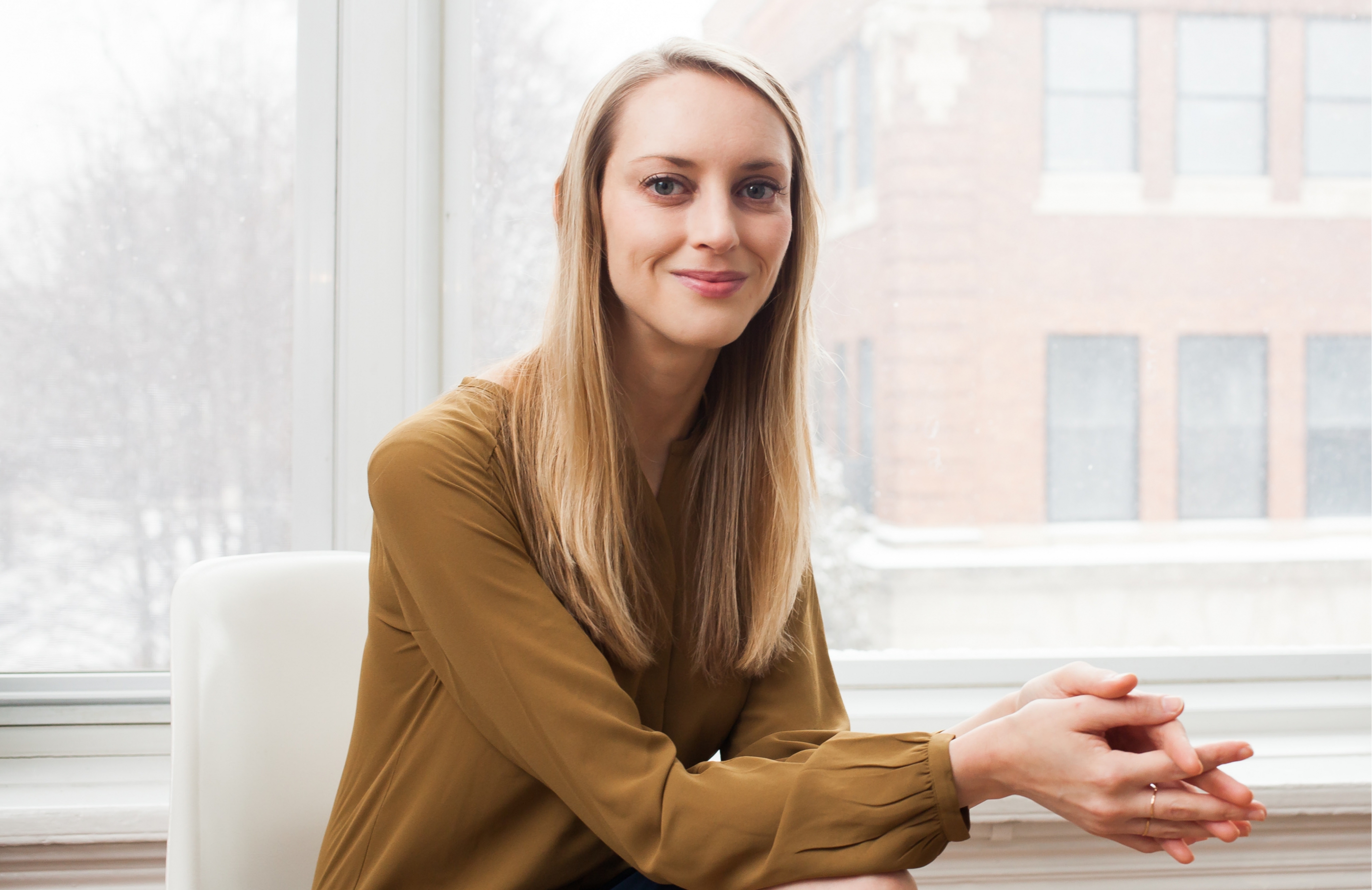Dedicated readers of Career Contessa may recognize that it’s common practice to ‘try on’ a few different careers before finding the one that feels just right. Still, there’s something to be said for taking the alternate route. Take Stevie Parker, 28, for example. Stevie knew right from high school that she wanted to pursue a career in optometry, and so, following the example of a family friend and motivated by her own passion for vision science, she capped off her undergrad experience with a four-year degree from the Illinois College of Optometry. Today, as a private practice Optometrist in Chicago, Stevie is living her dream of helping patients see things clearly.
Of course, we can’t skip past the heavy workload and crazy hours that are an integral part of medical school. Stevie vividly remembers the intense pressure of having to study—really study—for the first time as a first-year med student. Still, it all paid off in the end. The knowledge and time management skills that Stevie picked up in medical school help her every day as she examines and diagnoses patients.
So what exactly does Stevie do in her day-to-day life as an optometrist? A lot, actually. In addition to performing eye exams and renewing lens prescriptions, Stevie frequently works with complicated contact lens and eye surgery patients. Even the most basic appointment is pretty complex from Stevie’s perspective. Curious to know more about the ins-and-outs of a medical career? Read the full story below.
Her Starting Point
In college, you studied Biomedical Science at Grand Valley State University. What was your favorite class throughout the course of your studies? Which do you consider to be the most beneficial for your career?
My favorite courses at GVSU were physics and philosophy. I can’t say they were the courses I excelled in, but I always enjoyed studying these topics. It’s hard to say which courses have benefited me the most because I think they all played a huge role in preparing me for optometry school. If I had to choose, they would probably be physics, anatomy and physiology. I use the knowledge from these courses on a daily basis for determining patients’ prescriptions, examining their eye health and prescribing medications.
Did you know that you always wanted to be an optometrist? Why choose optometry over other types of medical study? What specifically was it that drew you to eye care?
I knew I wanted to be an optometrist by the time I reached high school. My eye doctor growing up was a family friend of ours. I found his job and lifestyle to be very appealing. Additionally, the science behind vision fascinated me, and the idea that I would be able to help my patients see more clearly motivated me to study optometry.
To really hone your skills you attended Illinois College of Optometry. We don’t doubt that medical school is just as difficult as everyone makes it out to be, but what was the most challenging part for you, specifically?
The most challenging part of optometry school for me was learning to study. I know it sounds silly, but I didn’t really study very much before that. We were handed a stack of papers about three feet tall our first day and were told this was for the first third of the quarter. That was a huge shock to me. Learning to balance my time and how to soak in information quickly was by far the biggest challenge for me. The fact that I thoroughly enjoyed the information I was studying helped tremendously.
In your experience, do you think having a particular focus within the medical world is necessary right away? How does someone decide which niche to pursue?
There were several students in my optometry class that were history or psychology majors. There were even students in my class that were engineers or accountants previously who were making a career change. So no, I don’t think you need to have a medical focus right away.
When deciding what niche to pursue, I think you should just imagine yourself thinking about this topic all day long. Is it something that you would enjoy spending that much of your life doing? I also am a strong believer in job shadowing; it is the best way to really decide if a profession is going to be right for you.
Her Big Break
After graduating, you held a cornea and contact lens residency before becoming an associate optometrist. What was that transition like? How are your current daily responsibilities different than they were back then?
As a resident, I was seeing complicated patients and learning how to fit specialty contact lenses. I also was involved in teaching students, doing research and giving presentations. I was constantly being educated and discussing cases with colleagues. It was a busy, stressful, exciting and wonderful year.
I currently work for a private practice as an associate optometrist in Streeterville. I still see complex contact lens patients on a routine basis and I have my residency training to thank for that. The major difference is that I am no longer actively involved in research or teaching. I also don’t have as many colleagues around to motivate me to continue learning. My position now is much more relaxed and independent.
Most of us only ever experience the one side of an eye exam. What is it like to be the one actually administering the appointment and tests?
The majority of patients come to their annual eye exam for a check-up and renewal of their spectacle and contact lens prescriptions. During their exam, we also are examining eye teaming skills and health. We may be asking the patient about their job and home life, etc., all while we are examining and determining these essential parts of their visual system. Sometimes the first diagnosis of diabetes, high blood pressure and even leukemia are seen in a patient’s eyes. Basically, an exam may seem simple to the patient, but it’s actually way more elaborate on our end. Being the one examining these patients takes a great deal of adaptability, patience and flexibility to work with all ages.
How does the constantly changing world of medicine affect your work? Explain to us your strategies for staying up-to-date on the latest technology.
I am a member of the Illinois Optometric Association, American Optometric Association and the American Academy of Optometry. By being a member of these associations—as well as an alumnus of the Illinois College of Optometry—I receive constant practice and technology updates via email and magazines, as well as invitations to continuing education events. I also frequently use an iPhone app that keeps me up to date on new contact lens materials and parameters.
You have been at your current role and office in private practice for almost two years. What do you love most about working there?
I love the people that I work with and the patients that I have the privilege of treating. The front desk staff—as well as the opticians that I work with on a daily basis—are outstanding. Our office is located in the heart of downtown Chicago, just off the “Magnificent Mile,” and I enjoy the excitement that comes along with that. Because we are in close proximity to a major hospital, I have the opportunity to see complicated contact lens patients on a frequent basis. I also conduct our LASIK consultations for patients wishing to have the procedure and see patients for their post-operative exams following cataract surgery. So all in all, great staff, patients, location and variety.
Her Perspective
It seems to us that doctors are notorious for working nearly round-the-clock hours. How do you maintain a healthy work/life balance?
As a resident, I definitely worked “round-the-clock” hours. It was sometimes challenging balancing time and energy, but I knew that it was only a temporary part of my life. At my current position as an associate optometrist, I am on-call after hours occasionally. Otherwise, once I leave the office I am home, and I could not be more thankful for that.
Medical school is a must for someone looking to enter the world of medicine, but what other “must do” experiences would you recommend?
I would recommend job shadowing different medical professions to see what best fits your personality and future lifestyle. Think about what types of patients you would like to work with and what type of impact you want to have on their lives. Perhaps visit those locations to get a real world perspective of what it would be like practicing your desired profession in that community.
There also are a multitude of specialties within each medical profession that you could look into. Within the optometric profession alone, there are physicians with advanced training in ocular disease, pediatrics, binocular vision, contact lenses and low vision.
What are the most important skills required of an optometrist? How could someone go about learning those skills if they don’t necessarily come naturally?
First, there are the technical skills of using optometric equipment to examine patients. These will be taught during optometry school. But almost equally important are time management, patience, communication and flexibility. If these things don’t come naturally, practice makes perfect. To learn time management, perhaps assign yourself an earlier due date for a project than what is required. For patience, communication and flexibility, start by taking three breaths before you speak to think about how you want to be perceived and what you want to say.
And finally, what do you wake up looking forward to? What’s next for your career?
At the moment, I am completely satisfied with my career. I look forward to going into the office every day and seeing a variety of patients. However, I am constantly looking for more independence. I hope to open my own practice at some point down the road.
You May Also Like
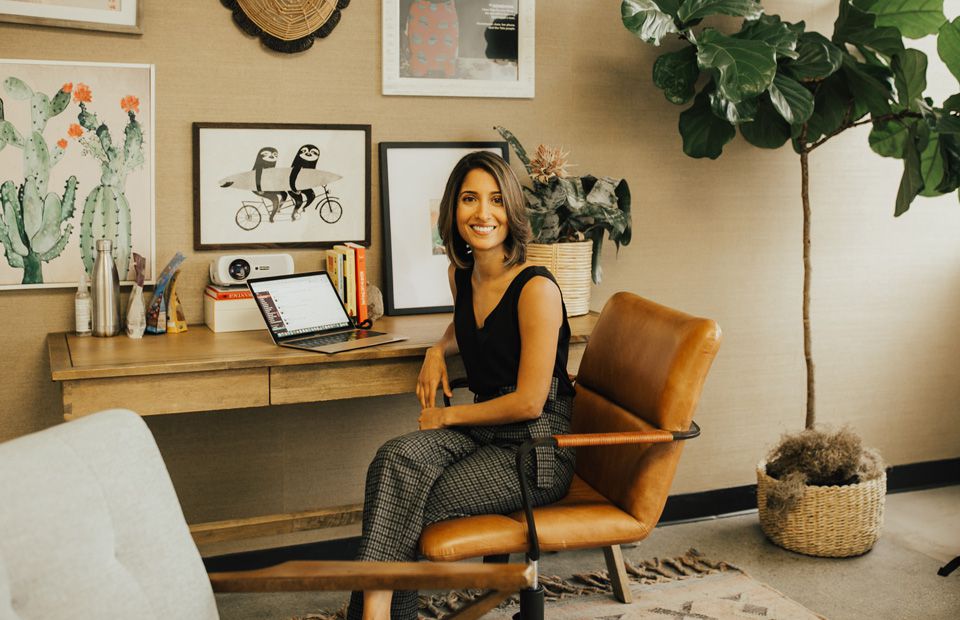
Technology
A Tech Founder on Why Being an Outsider Is a Strength
"I actually think most successful founders are rebels, of a sort. We’re trying to do new things and take on entrenched systems or ways of thinking. What makes me and our company different is that we’re outsiders."
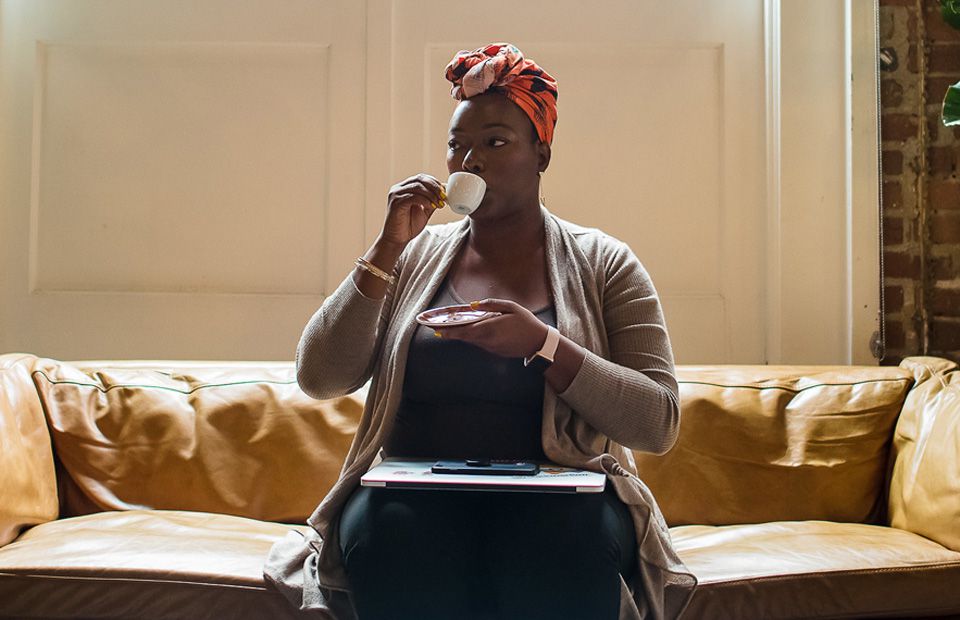
Technology
Omoju Miller—Tech Veteran, Leader, and Volunteer Advisor to the Obama Administration—on The Crucial Role of Creativity in the Tech Industry
"If you are in an environment where you feel marginalized, leave. Don’t try to change it. Go and look for a place that sees you and lets you be you."
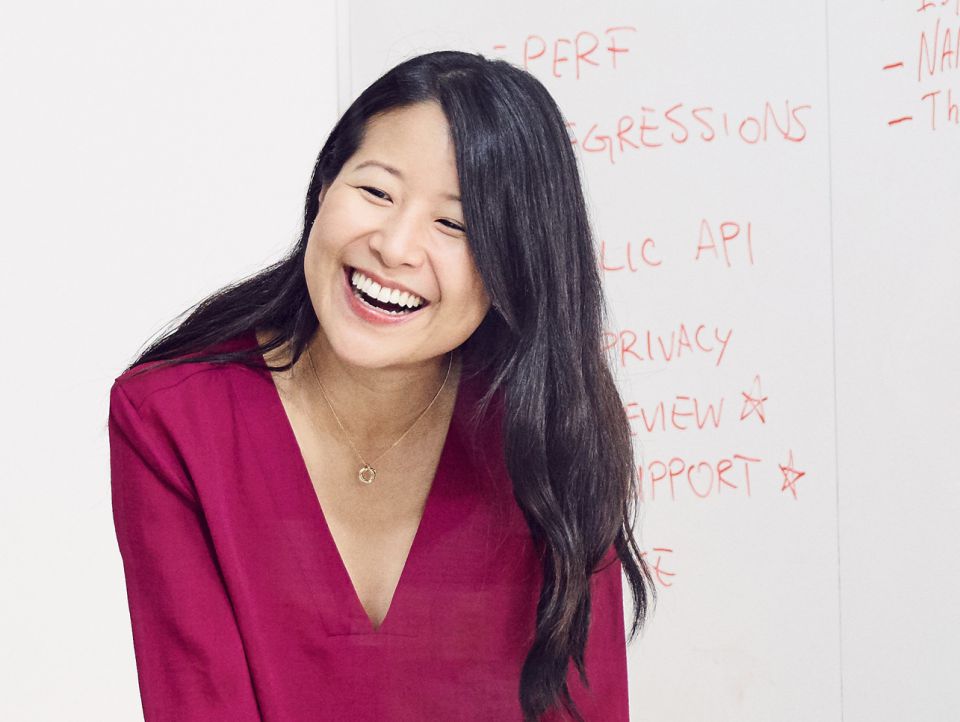
Technology
Sharing Stories as a Software Engineer
We sat down with Apple software engineer Emilie to learn about her day-to-day working at Apple along with what it takes to run the perfect meeting and her favorite ways to unwind.
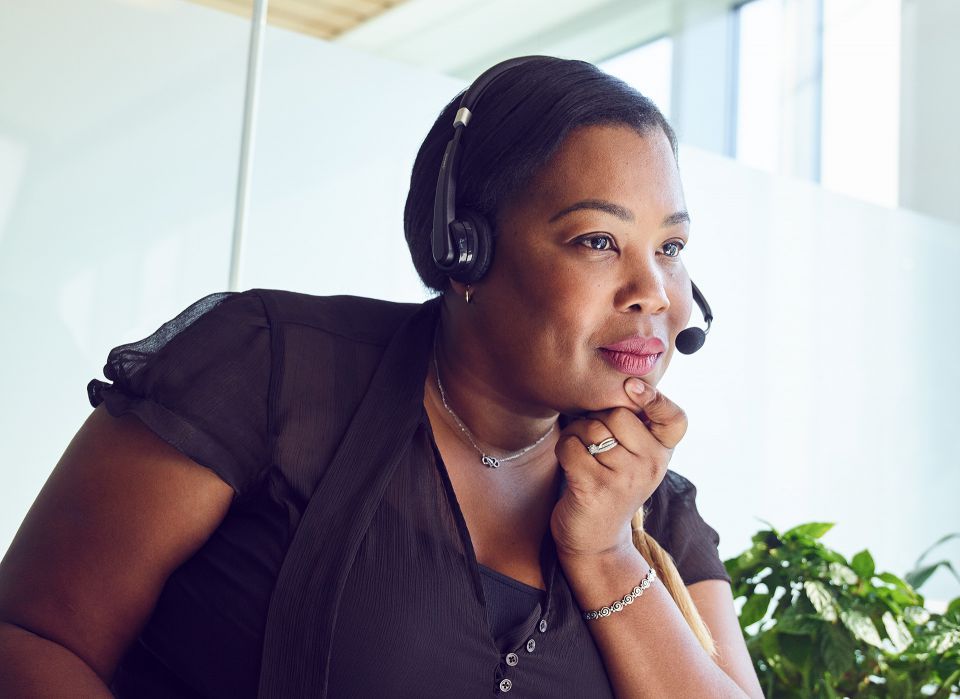
Technology
Creating Impact with Apple
We sat down with Apple's Senior Developer Partner Relations Advisor, Cris, to learn about what it takes to create a lasting impact within a large company. She shares a typical day in the life, her favorite book recommendations, and her top four tips to running a meeting.
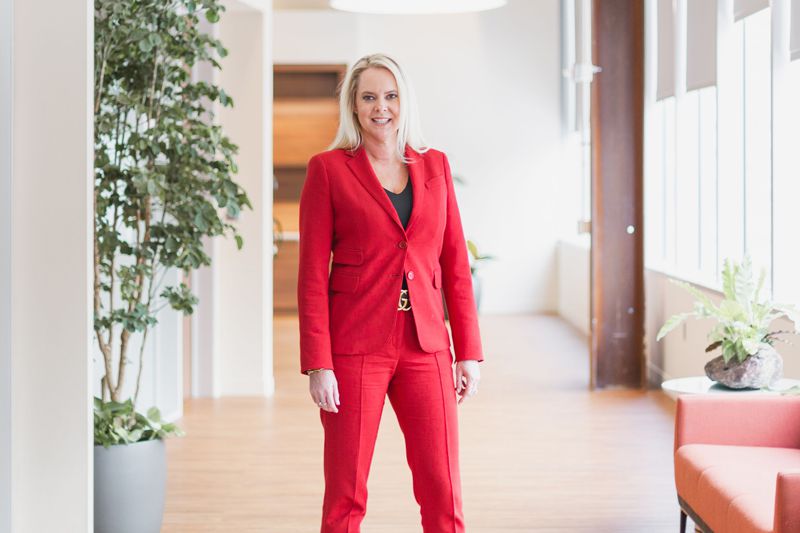
Technology
Salesforce’s Senior Vice President of Sales on Unconscious Bias, Failure, and Innovative Leadership
"Do not be afraid to fail, just bring your best self to the table."
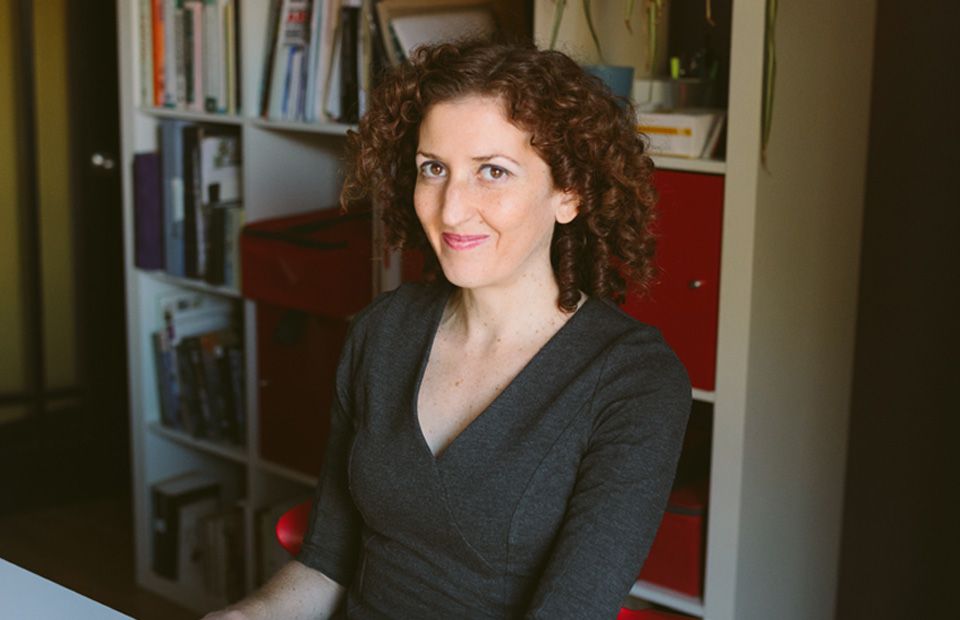
Technology
A Director of Engineering on Tech + Leadership
"I don’t believe in 'having it all'. If you spend more time on one thing, then you spend less time on another thing. All we can do is make choices on how to spend our time."
Get the Best Career Advice Delivered To Your Inbox
Join our newsletter to stay in the loop.
